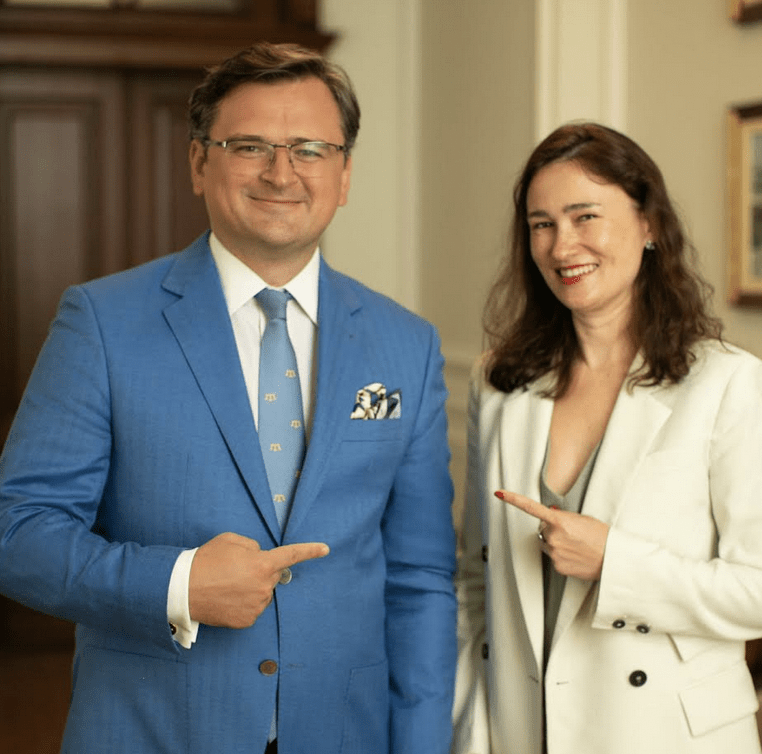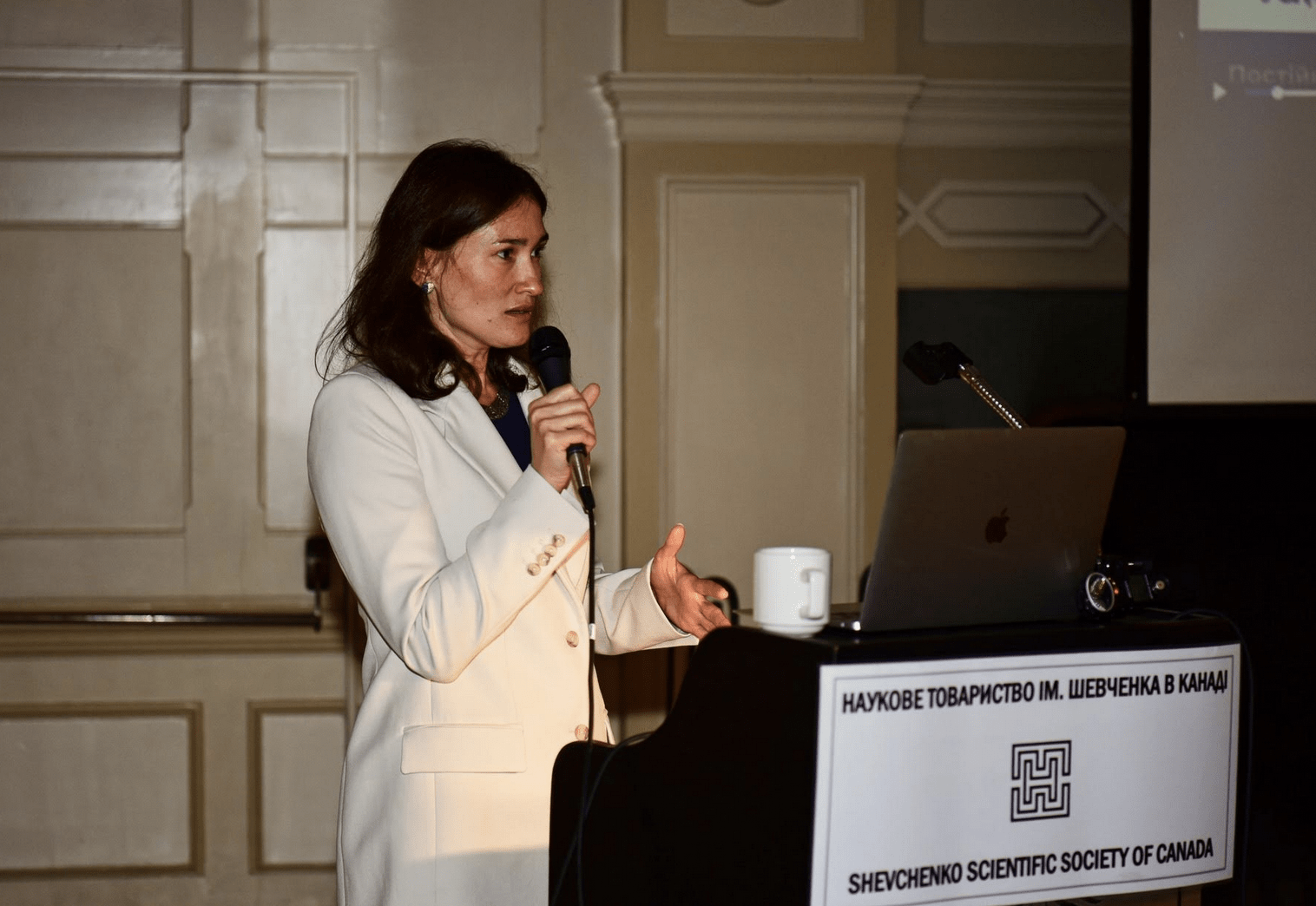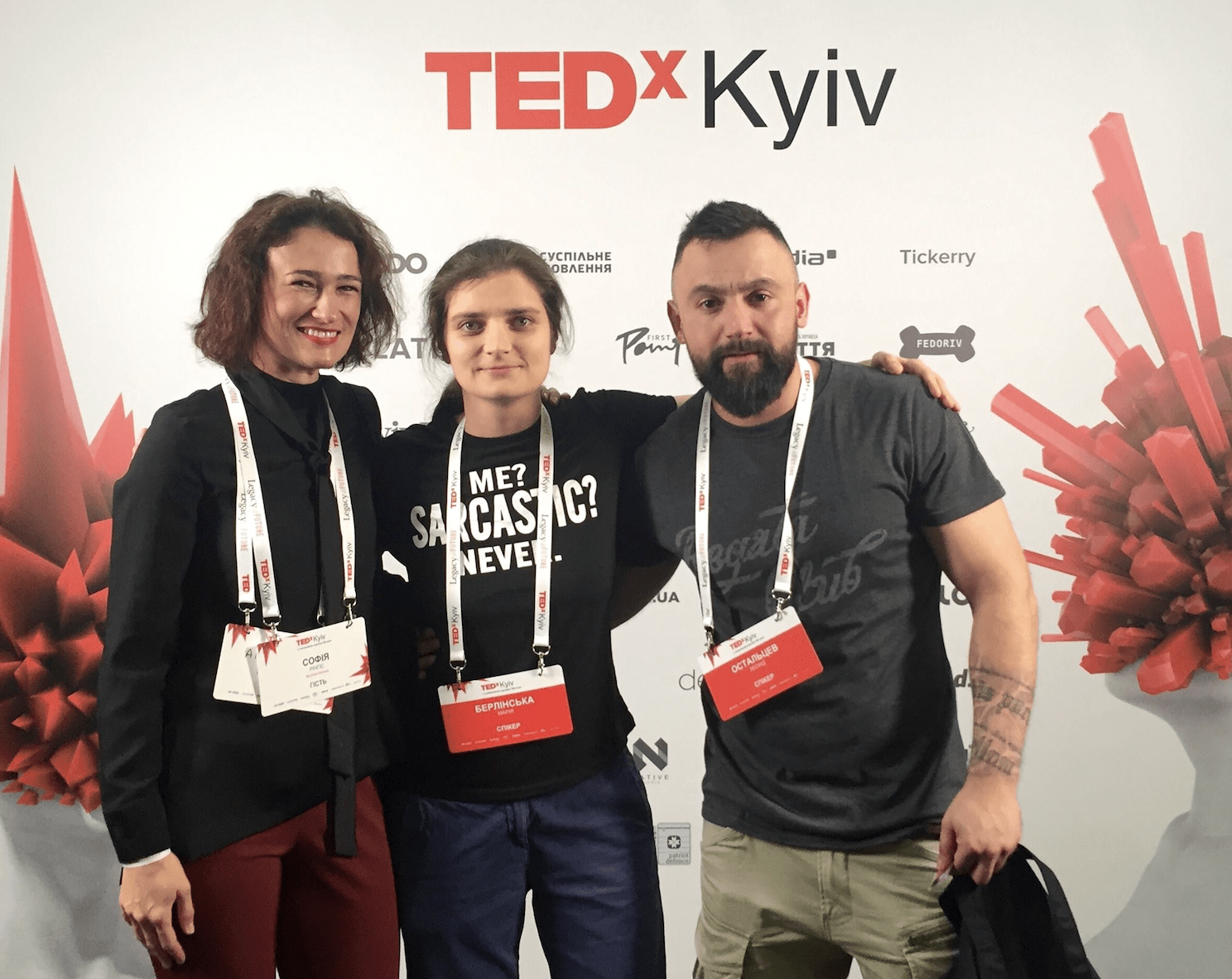Forged in the Maidan and Facing West: Ukraine’s New Generation of Leaders

Ukrainian Foreign Minster Dmytro Kuleba with author Anastasiya Ringis
Anastasiya Ringis
October 26, 2023
Some in the West have traditionally seen post-Soviet Ukraine as a corrupt and divided country whose aspirations to join both the European Union and NATO are not guaranteed. The truer narrative however, is Ukraine’s progress — shaking its Soviet colonial shackles with remarkable speed and success on its irreversible march to the West. But this progress is really the product of a cohort of new political leaders. The current generation – the generation of President Volodymyr Zelensky, Foreign Minister Dmytro Kuleba and Ambassador Yulia Kovaliv – includes the game changers who have ensured their country develops and reforms to Euro- and Euroatlantic standards irreversibly and as soon as possible.
In November 2013, Viktor Yanukovych, the corrupt Kremlin-puppet leader of Ukraine, pulled a stunning about-face, declaring he would not sign the country’s negotiated Euro-integration agreements, opting instead for a Russian trade agreement and bailout. Political journalist Mustafa Nayyem responded with a Facebook post that brought two dozen students to Kyiv’s main square to signal their civic protest.
Days later, the students were brutally beaten by police. The shocking treatment of young activists, freely and lawfully expressing their political point of view, brought a million Ukrainians to the “Euromaidan” (“Europe Square”) the following weekend. Thus was born the Euromaidan “Revolution of Dignity” – a resolve of the Ukrainian people that their human rights, civil rights and democratic freedoms would never again be compromised. It was a mass movement to prevent Ukraine from ever tilting back toward the autocratic orbit of an irredentist and revanchist Russia that had occupied the country for most of the twentieth century.
Ukrainians came out not only because the life of children is sacred, but also because the feeling of our freedom being taken away was so tangible. This physical assault on democracy required a physical response to defend it. When you hear that Ukrainians are ready to die for their freedom, this is not merely rhetoric. This is precisely what Ukrainians have been doing since November 2013.
A turning point was the mass shooting by riot police on Institutska Street on February 18-19, 2014 on instructions from Putin to Yanukovych to get the “security situation” under control. This was not a reprisal against an armed insurrection, but an attack against peaceful civilian protesters who stood up to police forces without weapons or body armour. The police surrounded and opened fire on the crowd with live rounds by trained snipers. This irrational act became an irreversible turning point in modern Ukrainian history.
 Author Anastasiya Ringis speaking to the Shevchenko Scientific Society of Canada/Courtesy Anastasiya Ringis
Author Anastasiya Ringis speaking to the Shevchenko Scientific Society of Canada/Courtesy Anastasiya Ringis
More than a hundred civilians (known as the “Heavenly Hundred”) gave their lives for victory in the Revolution of Dignity. And tens of thousands were born as leaders because they bore witness to this sacrifice.
In March 2014, when Russia invaded Ukraine, annexing Crimea and occupying parts of the Donbas, Euromaidan leaders organized the first volunteer battalions and began equipping civilians for the front. They sourced and provided ammunition, medical kits, and other non-lethal equipment. These volunteer organizations have been working intensively ever since.
Many future heroes and leaders grew up on “the Maidan”. Among them is Roman Ratushny, who became a symbol of a generation. He was just 16 years old during the Revolution of Dignity. The beatings of the protesters not only failed to intimidate him, they taught him to stand firm. He became a social activist and young politician. He defended the Protasov Yar Park in Kyiv against illegal construction, empowering his community to stand against oligarchs and corrupt politicians – a role model for other young reformers. In February 2022, he was one of the first in line at the military recruitment center. In June 2022 he was brutally killed by Russian soldiers.
The country and its resistance is being led by thirtysomethings and fortysomethings whose resolve and fervour for democracy were forged in the Revolution of Dignity sparked ten years ago this month.
Lawyer and human rights activist Oleksandra Matviichuk, who heads the Centre for Civil Liberties, started documenting the beatings of protesters on the Maidan in 2014. Today she is documenting Russian war crimes and working with multilateral bodies and international partners to prepare evidence for the Nuremberg trials in the Hague, awaiting Vladimir Putin and other war criminals. The Centre was jointly awarded the Nobel Peace Prize in 2022 along with the Russian human rights group Memorial and Belarusian activist Ales Bialiatsk.
Before the Revolution of Dignity, young civil activist Hanna Hopko fought to ban smoking in public places. During Euromaidan, she put a team together to start drafting legal and institutional reforms for a post-Yanukovych Ukraine. This culminated in the “Reanimation Package of Reforms” initiative, including major judicial, policing, anti-corruption, health care and education reforms. After Maidan, Hanna ran for parliament, where she served for five years and became distinguished as a reformer. After the full-scale Russian invasion of Ukraine in 2022, the now-41-year-old took a leading role in the International Center for Ukrainian Victory advocacy campaign internationally. The high-precision weapons, Leopard tanks, F-16 jets and ATACAMS have been arriving largely thanks to the work of her team.
Mustafa Nayyem – who catalyzed the Euromaidan protests with his Facebook post – is no longer working as a journalist. He went on to serve for five years in Parliament, and helped lead police reform. Last year, he was appointed head of the State Agency for the Reconstruction and Development of Infrastructure. This body also coordinates with international donors and triages the most urgent reconstruction work under war.
 The author, Anastasiya Ringis (left), with Victory Drones founder Maria Berlinska and Veteran Pizza founder Leonid Ostaltsev/Courtesy Anastasiya Ringis
The author, Anastasiya Ringis (left), with Victory Drones founder Maria Berlinska and Veteran Pizza founder Leonid Ostaltsev/Courtesy Anastasiya Ringis
There are many other such examples. In fact, the cross-section of political leadership today in both Ukraine’s government and Ukraine’s parliament – is dominated by this generation. The country and its resistance is being led by thirtysomethings and fortysomethings whose resolve and fervour for democracy were forged in the Revolution of Dignity sparked ten years ago this month.
This reformer generation is the first to have grown up entirely outside the oppressive shackles of Soviet society. Yes, many were born before 1991, but they came of age after the Soviet Union. Their mindset was not shaped by the corruption, defeatism and disdain for humanity that characterized and defined the USSR and which recent events have proven did not die with it. What’s more, this generation embodies pluralism. The president is Jewish. The Defence minister is Muslim, and a Crimean Tatar. Male, female, ethnically Ukrainian, Polish, Georgian, Armenian – the post-Maidan generation of leaders are completely united by a love of both Ukraine and democracy.
President Zelensky grew up speaking Russian, in a city in Ukraine’s heavily-russified east. He has become one of Ukraine’s greatest and most sincere patriots. The same man who had campaigned on brokering an end to the low-boil war in the east today defends every inch of Ukrainian land and has pledged never to compromise with the invading aggressor. And this has become the only position shared by the people of Ukraine today.
Unlike the Yanukovych-era politicians who ruled Ukraine as a colony, the post-Maidan generation are leaders. The events of a decade ago allowed society to pass through a point of no return. Ukrainian independence, the dignity of human life, and a European future became absolute national values.
The new cadre of Ukrainian political leaders are fully aware they are immersed in a bloody struggle. For them, the stakes are high and personal, but failure is not an option. This is the first generation of fully and truly European Ukrainian political leaders in every sense. And it is our duty to support them as they fight for their freedom, and for a modern, strong and European Ukraine.
Anastasiya Ringis is a freelance journalist and communications consultant. Born in Crimea, she has been in self-exile since the Russian occupation in 2014. In 2016, she was formally banned from occupied Crimea, along with other Crimean activists and leaders.
